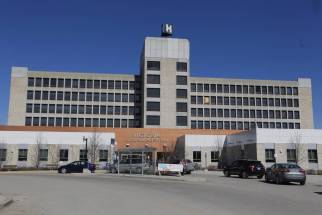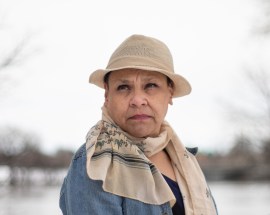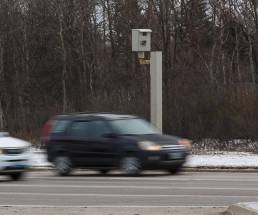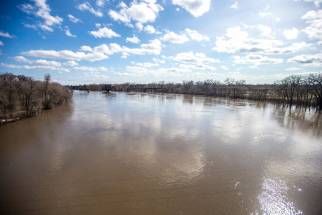Trepidation and tenacity Lviv stands firm beneath a foreboding sky
Read this article for free:
or
Already have an account? Log in here »
To continue reading, please subscribe:
Monthly Digital Subscription
$0 for the first 4 weeks*
- Enjoy unlimited reading on winnipegfreepress.com
- Read the E-Edition, our digital replica newspaper
- Access News Break, our award-winning app
- Play interactive puzzles
*No charge for 4 weeks then price increases to the regular rate of $19.00 plus GST every four weeks. Offer available to new and qualified returning subscribers only. Cancel any time.
Monthly Digital Subscription
$4.75/week*
- Enjoy unlimited reading on winnipegfreepress.com
- Read the E-Edition, our digital replica newspaper
- Access News Break, our award-winning app
- Play interactive puzzles
*Billed as $19 plus GST every four weeks. Cancel any time.
To continue reading, please subscribe:
Add Free Press access to your Brandon Sun subscription for only an additional
$1 for the first 4 weeks*
*Your next subscription payment will increase by $1.00 and you will be charged $16.99 plus GST for four weeks. After four weeks, your payment will increase to $23.99 plus GST every four weeks.
Read unlimited articles for free today:
or
Already have an account? Log in here »
Hey there, time traveller!
This article was published 06/05/2022 (1311 days ago), so information in it may no longer be current.
LVIV, Ukraine — As a muted sun spread over Lviv that morning, a low and droning hum slipped inside the hostel where I was still sleeping, working its way into my slowly waking ears. In those hazy first seconds of consciousness, I tried to make sense of what I was hearing: was it air strike sirens starting up again? I opened my eyes, and fumbled for my phone.
The night before, some Ukrainians on social media had warned, ruefully, that we might spend that Sunday — Easter, in the Orthodox tradition — in the ukrittya, the bomb shelter. Ukraine’s president, Volodymyr Zelenskyy, had claimed that Russia had refused a holiday truce; the fear, in a deeply faithful country, was that it would use the holy day to send a message.
Ukrainian Refugee Crisis
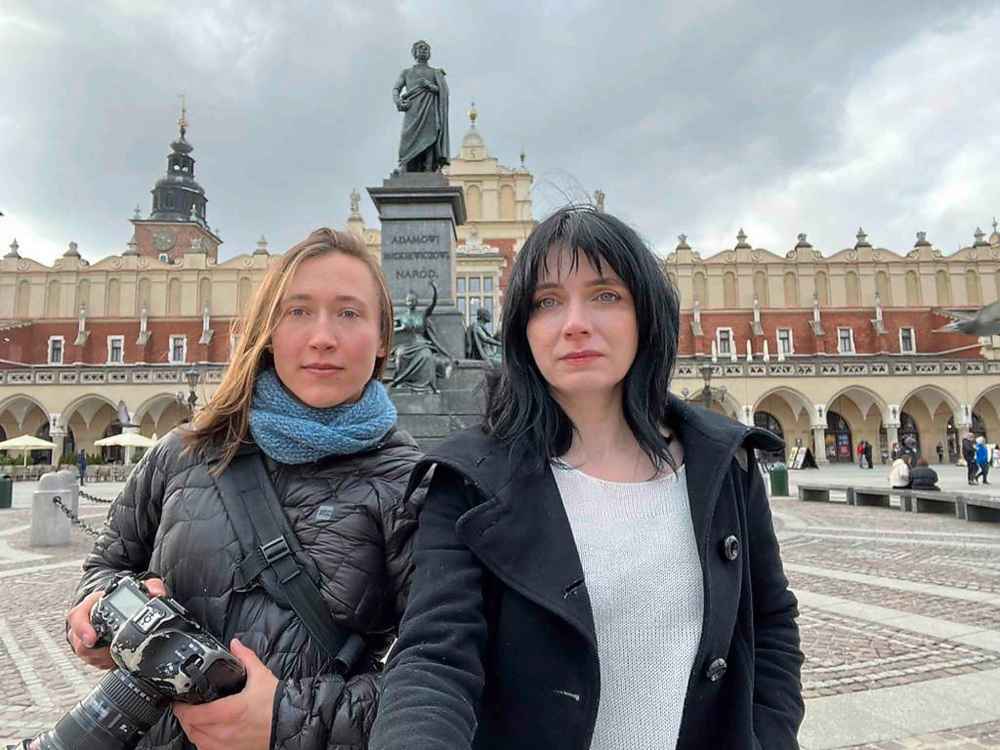
Posted:
As the world watches in horror the Russian invasion of Ukraine, and as Manitobans prepare to open their arms to refugees, the Free Press has sent writer Melissa Martin and photographer Mikaela MacKenzie to Poland to report on the largest refugee crisis in Europe since the Second World War.
But in Lviv at least, hundreds of kilometres from the front lines, the day dawned gently. The sirens held their tongues, the phone app that bleated the same warning stayed quiet, and the only sound that slipped through my window that morning was the hum of prayers, emanating from the church below, ricocheting off the weathered stone of old buildings.
As people spilled out of the churches, the city came alive. The cafés were full, and the warrens of old Lviv grew crowded with visitors paused to admire musicians playing folk songs on the traditional bandura. Men in gaudy unicorn costumes cavorted around the old square, wheedling passersby to take silly pictures for a “donation” of 20 hryvnia, or about $0.80.
In front of the grand opera house, draped in banners paying tribute to heroes of Ukraine both fictional (the mythical “Ghost of Kyiv” pilot) and deceased (Vitalii Skakun, a soldier who sacrificed himself to blow up a bridge and stop a Russian advance), families posed for photos with their Easter baskets, corralling giddy children to stand a few seconds in one place.
Nearby, coachmen offered horse-drawn carriage rides, the horses agreeably submitting to nose-pats and photos with wide-eyed children. A large crowd clapped and sang along with a street performer who, on his acoustic guitar, jammed out a folk-rock version of Bayraktar, a wartime ode to the Turkish-made military drones used by Ukrainian forces.
There are moments in Lviv where you can almost believe, if only for a few seconds, that the war is very far away.
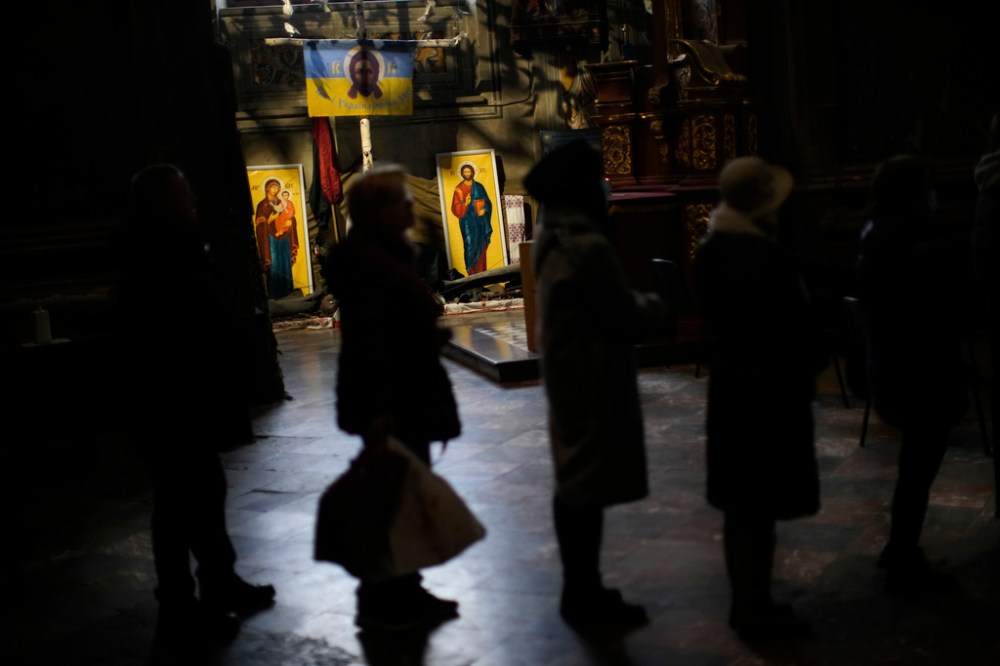
The city itself hasn’t suffered the way much of Ukraine has suffered. The previous week four cruise missiles had struck Lviv: one of them, ostensibly aiming for railway infrastructure, hit a tire factory instead. Seven died in that attack, the first known war fatalities inside the city. Still, the cobblestone streets of its historic old heart are roughened by time, not bombs.
In that heart, the people of Lviv have learned to live with the interruptions of war. When air strike sirens begin to shriek, the youth of Lviv barely look up from their phones. The kids who skateboard in the plaza beside a monument to Ukrainian poet Taras Shevchenko keep skating; men linger outside cafes to finish their cigarettes, joking and laughing.
But then you see the soldiers, patrolling the streets with weapons slung over their shoulders. You see the statues wrapped in sandbags and sheet metal to protect a nation’s cultural heritage from explosions. You see the white poster boards outside the old basilica, bearing the photos of soldiers from Lviv whose funerals are being held at the church that day.
Those signs change almost every morning, and almost every morning the street echoes with wails of a mother’s grief.
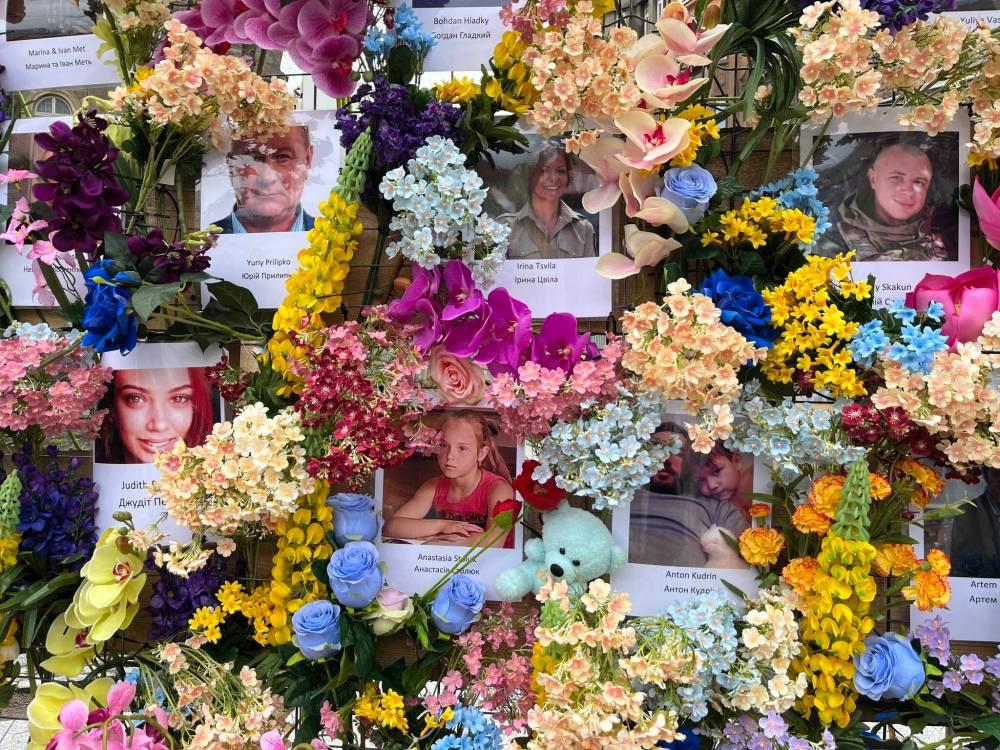
You go to the train station, which every day bustles with new arrivals of people displaced from points south and east: from Kharkiv, terrorized by near-constant shelling, or Mariupol, razed and starved in a brutal siege. Or, you walk a short way up from where street musicians are strumming, to a fence that blooms with flowers and photos of the war’s civilian dead.
That afternoon, an elderly man approached the memorial. He stood for a long time in front of the photos of the children, his face slowly twisting into a rictus of an unspeakable pain. Then he buried his face in his elbow, his body quaking with sobs so raw and private that even veteran photojournalists lowered their cameras, clasped their hands, and looked away.
● ● ●
At night, after an 11 p.m. curfew dropped an invisible barricade over Lviv, my friends — freelance journalists from Peru and Germany and New York — and I retreated to our hostel, which we shared with Ukrainians displaced from battered cities of the east. We’d crawl out the window onto a narrow stone balcony, pour wine into cups, and watch the empty streets.
The stillness that came over the city then was unbroken, nearly perfect. No trams rumbled over the cobblestones; no young people took their chances of slinking through the shadows to meet. Every once in awhile, a pair of soldiers would amble by, unhurried; other than that, for long hours we’d see no living thing, except the occasional prowling cat.
In Ukraine, even in the relative quiet of Lviv, the sky became a place of suspicion: no longer comforting, now pregnant with threat. No longer empty, but permeable, waiting to be punctured by death.
We passed several nights like this: the city closed, the open sky our shelter.
And the sky feels different in Ukraine. For weeks, Zelenskyy had called on NATO to “close the sky,” meaning to establish a no-fly zone that would inevitably involve direct engagement between Russian and NATO forces. It was understandable for Ukraine, under the terror of bombs, to ask; it was wise for NATO, fearing escalation that would engulf the world, to refuse.
By mid-April, Ukrainian officials had abandoned that tack, returning to another angle they’d tried earlier in the war: “if you won’t close the sky, give us the weapons and we’ll close it ourselves.” But if being in Ukraine didn’t change my evaluation of the wisest geopolitical course of action, it did change how viscerally I understood the difference between open and closed.
If you have grown up on the Prairies, then the sky has been a place of safety, an embrace of blue that stretches between the horizons, reassuring in its emptiness. But in Ukraine, even in the relative quiet of Lviv, the sky became a place of suspicion: no longer comforting, now pregnant with threat. No longer empty, but permeable, waiting to be punctured by death.
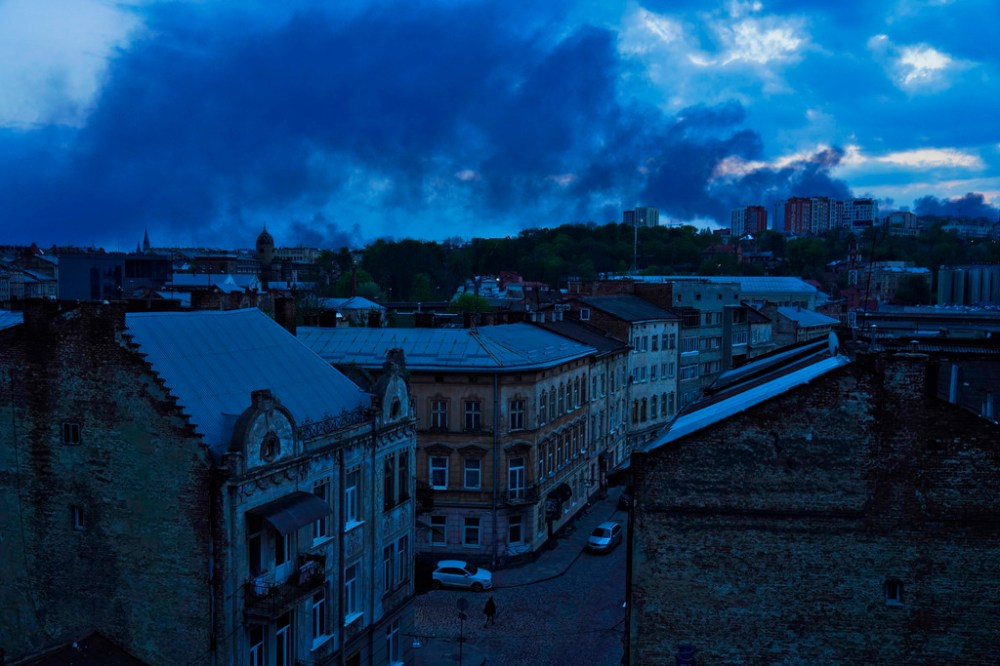
There is no way to escape that suspicion of the sky, not really. The ukrittya in which we took shelter during the sirens rarely felt safe enough; the walls of the old church catacombs near the hostel were so brittle with age that they crumbled at a touch. And sometimes, missiles slip past the air defences and strike even when the alerts aren’t on.
One night, as we sat on the balcony murmuring conversations about life and war, a sudden bang echoed across Lviv.
“Thunder,” my friend said, uncertainly, although it had long since stopped raining.
Still, the noise was probably nothing. I watched the sky and shivered, and told myself it was because I was very cold.
● ● ●
On my last evening in Lviv, I bid goodbye to Mira, an effortlessly elegant English teacher who, during the war, has taken to working as a translator for foreign journalists and aid organizations. We’d had a lucky day — no sirens — and we’d ended it with a glass of wine at a trendy bar that has anti-war art on the walls, and a DJ booth in its basement bunker.
The clock was inching towards curfew. We walked Mira to where she would meet her Uber. Suddenly, she remembered that she’d meant to take me shopping — I’d lamented not feeling fashionable enough for Lviv, even at war — but between various other meetings and commitments, we’d never gotten the chance.
“You must come back. After victory.” – Mira
“You must come back,” she said. “After victory.”
Six days after I left Lviv, cruise missiles slammed into three electric substations in the city, sending fireballs blooming into the open sky. In the same minute I saw the news, Mira commented on my Instagram, asking for a copy of a photo I’d taken of the four of us in front of the opera house on that Easter Sunday, laughing, enjoying the day together.
Oh yes, she said, Lviv got hit just minutes before, but she was safe. She was in the shelter. I put down my phone and swallowed what was rising in my throat, a bitter mixture of relief and anger.
melissa.martin@freepress.mb.ca
Our newsroom depends on a growing audience of readers to power our journalism. If you are not a paid reader, please consider becoming a subscriber.
Our newsroom depends on its audience of readers to power our journalism. Thank you for your support.
History
Updated on Saturday, May 7, 2022 9:14 AM CDT: Corrects spelling of hryvnia



